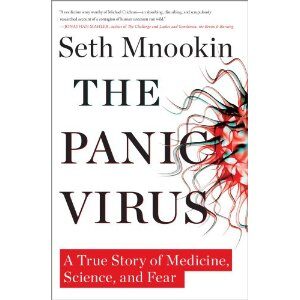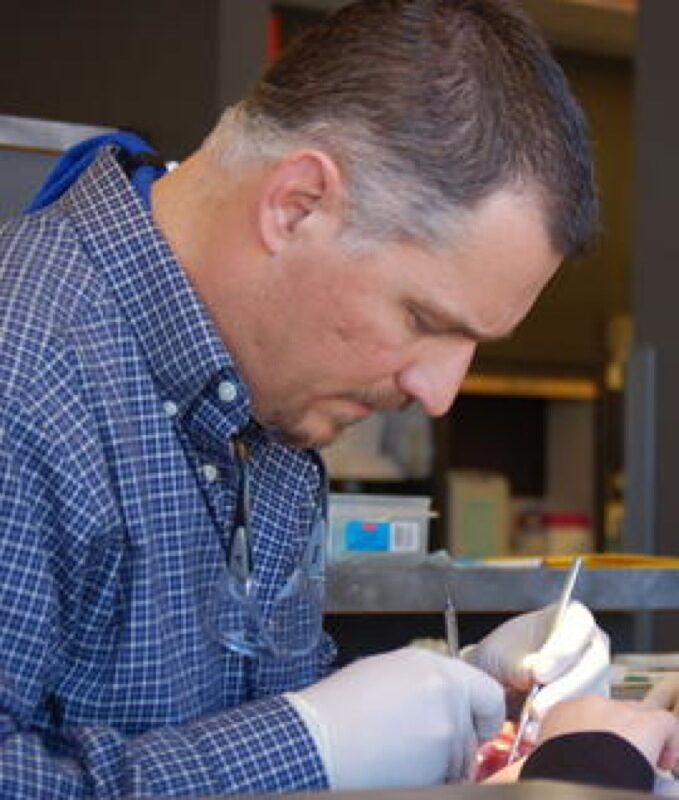Rupert Isaacson www.horseboymovie.com horseboyfoundation.org Rupert Isaacson and Kristin Neff were in crisis after their son Rowan was diagnosed with autism, because for Rowan autism meant constant distress, tantrums, and social isolation. His parents sought out the best help and therapies, but little helped ease Rowan’s dysfunctional autism symptoms until the family stumbled upon Rowan’s connection to horses and shamans, which then drew the three of them to Mongolia for “an epic quest for healing.” The Horse Boy is not just different from other autism books — in its depiction of a family who accepts their child for who he is while refusing to stop until they heal that which is causing his misery, it is unique. I was very inspired by The Horse Boy, by the fact that you sought out your son with autism’s strengths and interests and affinities in horses, in shamans — and did your utmost to…
Year: 2011
Jennifer Byde Myers www.jennyalice.com Jack is asleep in my bed right now. He wandered in while I was folding clothes; I pulled back the covers and asked if he wanted to snuggle. He’s non-verbal, but he made a happy sound I know to be yes, and from across the room he leapt in, buried his head under the pillows, and fell back asleep as I returned to my unmatched socks. It’s hard to believe that he’s the same boy who as a three-year-old didn’t sleep for 52 days. Fifty-Two days where he didn’t rest longer than twenty-thirty minutes in a row and no more than one to two hours in a 24-hour period. Back then he would scream and thrash the entire time between passing out. It’s an example — the worst one — of what we call “episodes,” what appeared to be pain from unknown source, and it happened…
Vaccine expert Dr. Paul Offit is the author of the new book Deadly Choices: How the Anti-Vaccine Movement Threatens Us All. We talked with Dr. Offit about realities of vaccine-preventable diseases, the importance of herd immunity, just how contagious measles really are, why you shouldn’t have chickenpox parties, why neither he nor Jenny McCarthy are autism experts, why it is unethical to run studies featuring vaccinated versus unvaccinated children, and just how extensively the autism-vaccine hypothesis has been debunked. [update 2/1] Dr. Offit discussed many of these same topics during his 1/31 guest spot on The Colbert Report. What is your elevator pitch for parents concerned about vaccines and autism? I think raising the concern is reasonable. Children get vaccines, and for some children, the signs and symptoms of autism may appear soon after receiving the vaccine, so asking those questions is reasonable. The good news is that the question…
Kim Wombles http://kwomblescountering.blogspot.com/ http://www.science20.com/science_autism_spectrum_disorders My husband and I obtained guardianship of my bright boy when he was approaching 18 years old — the legal age of adulthood in the US. Bobby has a blood clotting disorder which lead to a stroke at aged nine, which left him with significant cognitive disabilities. Bobby’s certainly an adult, but he has a cognitive impairment; he can’t spell more than a few words despite many long years of working at it, can’t do double digit math. He is my son, my bright boy, and while I accept and celebrate that he is an adult, the truth is that he is an adult with a cognitive impairment that requires he have assistance. We work very hard to find a balance that allows him the opportunity for growth, to reach his potential. We work very hard to allow him as much autonomy as he is capable…
Mark Osteen www.loyola.edu/fas/mosteen www.oneofusbook.com It’s easy to imagine that a deep silence hangs over people with autism, but nothing could be further from the truth, at least in our case. My autistic son Cameron has always been a noisy, histrionic child. He speaks most volubly with his body, and over the years we’ve learned to interpret this language: gleeful scissors-kicking jumps; contented or angry rocking; a myriad wordless shouts; the fine gradations in a face that to the uninitiated seems blank; an entire lexicon of claps. Cam’s claps are his personal Morse code. A single clap after he has sung a line or done something he finds remarkable serves as an exclamation point: “How about that?!” A series of claps in front of his open mouth creates a booming effect that means “I’m getting mad,” or “I wish I could tell you what I mean.” Several loud claps and a…
Scott Standifer Disability Policy and Studies Office School of Health Professions University of Missouri http://dps.missouri.edu/Autism.html standifers@missouri.edu Introduction from the editors: Many of our readers are from outside the United States, or have children with autism under the age of 16, and so are not yet fully aware of some of the elements of employment and employment planning for adults with disabilities in the US, including autism. The following brief summary is an orientation. In 1973, the United States passed a law that directed federal and state authorities to assist people with disabilities to find employment. In the same time period, the US mandated that children with disabilities must receive educational services, and to be provided with planning for transition from the school years to subsequent employment. In the subsequent years, transition from school to work has evolved in many ways. In the US, the system for helping people with disabilities…
Sam Keller www.scrappysam.com It was the night of the Volunteer Appreciation Dinner at our church. As the pastor’s wife, I am generally required to attend these sorts of things with the unspoken expectation to always smile, be nice, and glow with the joy of the Lord, even if I have to, dare I say … fake it. I was running late that evening, overwrought with juggling three kids, sports practice, and a cranky baby. My plastered-on smile thinly hid tears of frustration leaking out my nose. As I stood and perused the room full of familiar faces, the tension in my spirit only clogged my throat more. I felt like an intruder interrupting a play in the second act. The crowd was engaged in conversation and gaiety and I felt like I was barging in with a bag full of awkward. I stood on the outside, trying to find the…
It is bizarre that claims linking vaccines to autism have persisted for more than a decade when they can be debunked by a sixty-second Google search. But, as investigative journalist Seth Mnookin explains in his new book The Panic Virus, vaccine facts can’t always compete with parent-, internet-, and media-generated vaccine beliefs. The Thinking Person’s Guide to Autism talked with Mr. Mnookin about his book, about the risks of complacency regarding public opinion on vaccines and autism, the flaws of modern science journalism, why and how pediatricians need to step up their participation in vaccine education, the tragedy of an autism community divided, and why we need to keep blasting holes in echo chamber walls. —– Why did you feel compelled to write this book? It was not because I had a personal connection, which is odd because it’s such an emotional topic. But I was shocked at how people…
Amy Tuteur, MD skepticalob.blogspot.com www.askdramy.com On the surface, the old idea of the “refrigerator mother” causing autism and the new quack idea of vaccines causing autism might appear to have little in common. However, as Dr. Michael Fitzpatrick notes, they both rest on the same deeply flawed belief: it is the mother (through her emotional response or her actions) who causes autism in her child and it is the mother (through her emotional response or her actions) who has the power to prevent autism. Fitzpatrick is the author of Defeating Autism: A Damaging Delusion, a physician and the parent of an autistic child. He writes bitingly about the quackery in the “crusade against autism.” Jenny McCarthy is an obvious target: In the foreword to Louder Than Words: A Mother’s Journey Into Healing Autism, Jenny McCarthy is described as the ‘polar opposite’ of the ‘refrigerator mom’, the quasi-demonic figure blamed by…
Dr. Greg Evans DDS www.biggrinswithdrgreg.com In my pediatric dental practice I like to say we treat children. And I like to pause at the end of that sentence. No qualifiers. My father, a junior high school teacher of thirty years, said it a little differently: “They are all good kids, only the time and circumstances have changed” Each child has basic needs, including oral health. Those basic needs do not change based on the developmental age, social environment, or neurological wiring of the child. The circumstances have changed, though. In my early school years, children with special needs were routinely sequestered from the mainstream, and those practices carried over to healthcare. Now the schools show progress, though in healthcare, some of those ‘traditions’ continue. With separation came differences in treatment and different standards of care ,and that has led to a dearth of knowledge within the medical and dental professions…


